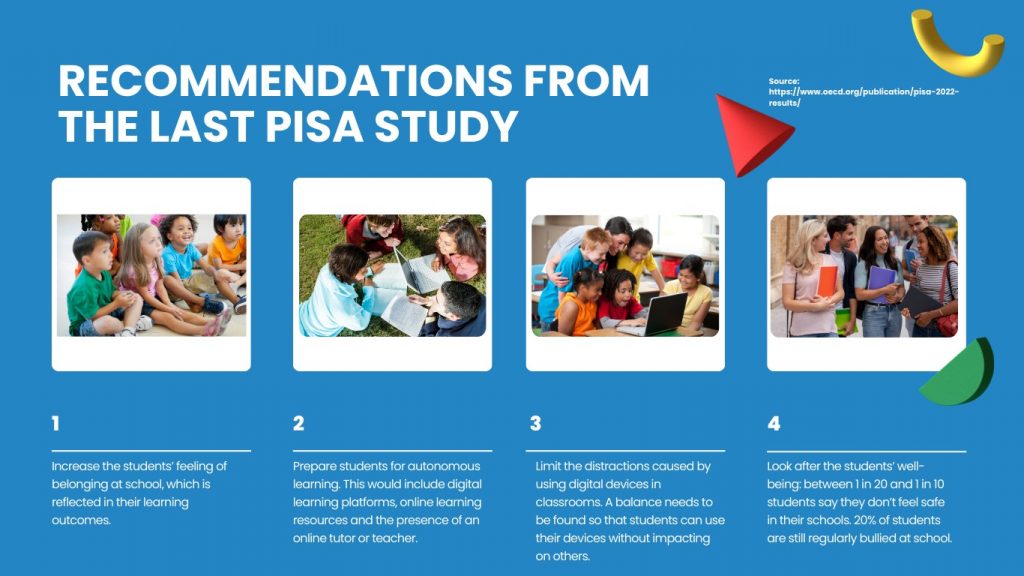Over 100 countries have used the Programme for International Student Assessment (PISA) and around 3,700,000 students participated in the studies.
Last December, PISA published the results of their most recent study conducted in 2022. The striking common denominator across all participating countries was the unfortunate drop in the performance in Maths, Reading and Science. The UK has also shown a constant drop in the levels achieved in all three areas over the years, with Maths at -12.8% drop between 2018 to 2022.
The new PISA study planned for 2025 will include more science subjects and foreign languages, it will also “include the innovative domain of Learning in the Digital World which aims to measure students’ ability to engage in self-regulated learning while using digital tools.”
If the UK wanted to improve its PISA ranking amongst the other 80+ participating countries, it would need to
- Ensure that schools are better equipped for effective STEM teaching
- Offer a more serious approach to teaching languages
- Embrace online opportunities for learning and teaching
It would also be important to consider developing a curriculum for teaching AI, which the younger generations will need to live with and use more than we do today.
The top 3 recommendations for learning from PISA for all countries are
- Increase the students’ feeling of belonging at school to improve their learning outcomes. It is not just about the attendance records, but also about active inclusion in school activities, interacting will all groups at school, encouragement to improve and recognition of the effort.
- Prepare students for autonomous learning. This would include digital learning platforms, online learning resources and the presence of an online tutor or teacher. Encouraging autonomous learning at school will help the students do well once they leave school, too.
- Look after the students’ well-being: between 1 in 20 and 1 in 10 students say they don’t feel safe in their schools. Regular bullying still affects around 20% of students.
- Limit the distractions caused by using digital devices in classrooms. This is a problematic recommendation for learning as students often use their mobile phones for autonomous leaning. A balance needs to be found so that students can use their devices without impacting on others.
Source: https://www.oecd.org/publication/pisa-2022-results/

